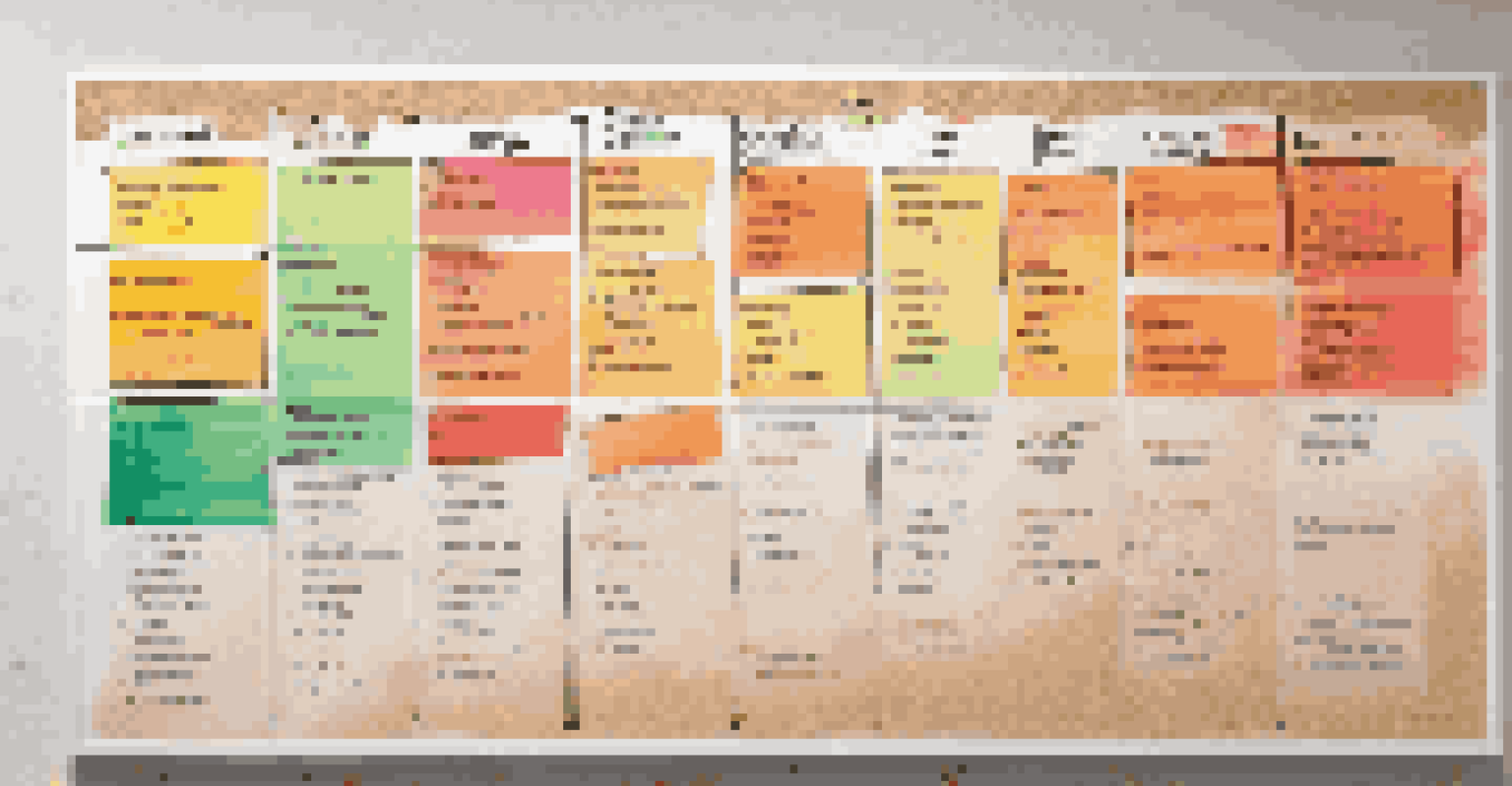Setting Goals for Your Continuing Education Journey

Understanding the Importance of Goal Setting
Setting goals gives direction to your continuing education journey. It's like having a map that helps you navigate your learning path. Without clear goals, you may find yourself wandering aimlessly, unsure of what to pursue next.
Setting goals is the first step in turning the invisible into the visible.
Goals also serve as motivational tools. When you have a target to aim for, you’re more likely to stay focused and committed. This sense of purpose can push you to overcome challenges and keep you engaged in your studies.
Moreover, setting specific and measurable goals allows you to track your progress. This not only boosts your confidence as you achieve milestones but also helps you adjust your strategy if you find yourself veering off course.
Identifying Your Educational Aspirations
To set effective goals, start by identifying your educational aspirations. What skills do you want to acquire? Which subjects excite you the most? Reflecting on these questions can help clarify your priorities.

Consider your long-term career objectives as well. Are there specific qualifications or knowledge areas that will advance your career? Aligning your educational goals with your career aspirations can create a more meaningful learning experience.
Set Clear Educational Goals
Establishing specific goals provides direction and motivation for your learning journey.
Don’t hesitate to reach out to mentors or peers for insights. They can provide valuable perspectives on what skills are in demand and what educational paths might best serve your goals.
SMART Goals: A Framework for Success
One effective method for goal setting is the SMART criteria: Specific, Measurable, Achievable, Relevant, and Time-bound. This framework ensures that your goals are clear and attainable, enhancing your chances of success.
A goal without a plan is just a wish.
For instance, instead of saying, 'I want to learn about marketing,' a SMART goal would be, 'I will complete an online marketing course by the end of March.' This specificity provides a clear target to work towards.
Using the SMART framework helps you stay accountable to your goals. It transforms vague intentions into concrete plans, making it easier to track your progress and make adjustments as needed.
Breaking Down Goals into Manageable Steps
Once you've set your goals, break them down into smaller, manageable steps. This approach makes large goals feel less daunting and helps you stay motivated as you achieve each milestone.
For example, if your goal is to obtain a certification, your steps might include researching programs, enrolling in a course, and completing assignments. Each completed step brings you closer to your ultimate goal.
Utilize the SMART Framework
Applying the SMART criteria helps transform vague intentions into actionable and measurable plans.
This method also allows you to celebrate small victories along the way, which can be a great source of motivation. Acknowledging your progress keeps the momentum going and reinforces your commitment to your educational journey.
Creating a Timeline for Your Goals
A timeline is an essential component of effective goal setting. It helps you establish deadlines for each of your smaller steps, ensuring that you stay on track to achieve your overall goals.
Consider using tools like calendars or project management apps to visualize your timeline. This can help you allocate your time more effectively and prioritize tasks based on their urgency and importance.
Having a clear timeline not only boosts your productivity but also provides a sense of urgency. It encourages you to take consistent action, making your educational journey feel more structured and purposeful.
Staying Flexible and Adjusting Your Goals
While having a plan is crucial, it's equally important to stay flexible. Life can be unpredictable, and sometimes your goals may need to evolve based on new circumstances or insights.
Regularly review your goals and assess your progress. Are the steps you’ve set still relevant? If not, don’t hesitate to adjust them to better align with your current situation and aspirations.
Celebrate Your Progress
Recognizing and celebrating small achievements boosts motivation and reinforces your commitment to lifelong learning.
Embracing flexibility ensures that your educational journey remains enjoyable and fulfilling. It allows you to adapt to new interests or opportunities that may arise, keeping your learning experience dynamic.
Celebrating Achievements Along the Way
Don’t forget to celebrate your achievements, big and small! Recognizing the progress you’ve made can enhance your motivation and reinforce your commitment to lifelong learning.
Whether it’s treating yourself to something special after completing a course or sharing your success with friends and family, celebrating milestones helps solidify your accomplishments.

By acknowledging your hard work and dedication, you foster a positive mindset that encourages you to continue pursuing your educational goals with enthusiasm.